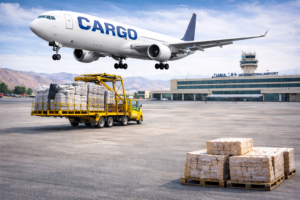KABUL (SW) – In a series of conversations with 18 girls who have migrated independently, Salam Watandar found that these girls have encountered psychological, physical, and social challenges along their migration journey.
The girls interviewed in this report migrated after the political and military upheavals in Afghanistan from the beginning of 2021 to the present.
This report examines the reasons for migration, the challenges of the journey, and life in destination countries for Afghan girls. Seven of the interviewed girls moved to Portugal for master’s studies, 8 to Germany to continue their lives, 1 moved to Iran, and two others migrated to Canada due to the lack of job opportunities, uncertain living conditions, and the absence of educational avenues in the country.
Many of the girls interviewed cited a lack of educational opportunities, social discrimination, and dire economic conditions as reasons for leaving the country. In search of a better future, they have chosen to confront numerous challenges.
Parwana, a 24-year-old from Daikundi province, expressed her desire to become a doctor to assist rural women with limited access to healthcare. However, pursuing this dream forced her to leave her family and friends, traveling to a large and unfamiliar city.
“Deciding to leave Afghanistan without my family was hard. At first, I was very stressed about what to do alone and who to turn to if something went wrong. I understood my life would change, but I was still scared. Every night, when I am alone in my room, memories of home and family come back to me, reminding me of the simple and peaceful days I had with them,” she said.
Economic challenges are another reason why single girls have been drawn to foreign countries. Zahra Moradi, who migrated to Iran due to economic pressures and the ban on women’s work in Afghanistan, said: “My father was ill, my mother couldn’t work, and I didn’t have any brothers; my brother-in-law is in Iran and told me to ‘come here to Iran and work in the factory with me so you can earn at least 7,000 afghanis a month’. If our economy had been better, I would have studied more, but now I only work and send money back to Afghanistan.”
The hope for a better future is a thought shared by each of these girls, but the challenges of the migration process have made achieving that dream more difficult.
The results of Salam Watandar’s conversations with 18 girls who migrated abroad alone, show that the lack of a male guardian for permission to leave the country, loneliness during the journey, and physical dangers are some of the other challenges they faced.
Diba, from Kabul, who migrated to Germany for a better future and to escape life’s difficulties, explained: “Definitely, no path is without hardships. When I wanted to leave Afghanistan, I couldn’t go without a mahram (male guardian); they even didn’t let me in the embassy without one. Every moment was challenging. During the journey to Pakistan, I was very scared of being asked where I was going, who I was. I was afraid because I was a girl; a thousand thoughts crossed my mind, and I didn’t understand which path I was on. I never had a moment of mental peace.”
Sewita Gowhari, who also migrated to Canada to build a better life, shares a similar story: “Because I was alone, I was very scared that they wouldn’t let me pass because I was traveling without a male guardian. I was interrogated a lot, but I finally succeeded in crossing the border.”
Crossing borders and even reaching third and destination countries; the challenges for these girls do not end there. Adapting to a new culture and life is another challenge they face in the early days of arriving in their destination country.
Out of the 18 girls interviewed for this report, 17 migrated to Western countries such as Portugal, Germany, and Canada.
They report facing challenges in learning a new language and adapting to different cultures. These challenges affect their daily lives.
Banafsha, who migrated to France, talks about her concerns and challenges in that country: “Here, like everywhere else, the lack of jobs threatens our continued presence. A strong will, firm determination, and effort to achieve our goals in this country, where we are alone, can be our only support.”
Kobra, who migrated to Germany in 2023, considers learning the language one of her biggest challenges, saying: “This [German] language is truly the hardest language I have ever encountered. Although we have improved, I still face problems. Sometimes, no matter how hard I try, I feel like I am not learning anything.”
Learning the language and adapting to a new culture are not the only challenges these girls face after migration; they also share feelings of homesickness and psychological pressures.
Loneliness and separation from family are considered some of the hardest challenges for migrant girls. They complain about the lack of emotional support and loneliness, especially being away from their mothers and families.
Shakiba is one of these girls who, like dozens of others, has embarked on a long journey in search of her dreams. However, within this dream, a shadow of longing and sadness is always with her, a feeling she can never forget. Shakiba, who has been studying abroad for two years, finds life away from her family, especially her mother, painful.
“I miss my mother. Whenever I remember her unfulfilled dreams, I become more determined to continue her path. But at night, when I am alone, the longing for her warm voice and loving embrace breaks my heart,” she told Salam Watandar.
Fereshta, also shares her pains and longings: “When I arrived here, I felt like I left a part of myself at home. My homesickness is largely tied to the absence of the people I grew up with. The sounds from the streets of our neighborhood, the scent of the air in our city, and the warmth of my family, who always supported me, was with me. Here, I am alone; even when my friends are around, I feel something is missing. My longing follows me like a shadow.”
Psychologists believe that migrant girls can alleviate their psychological issues by creating social networks, making new friends, and adapting to their new environment.
Zahra Mirzaie, a psychologist, says: “Girls who have migrated alone should seek solutions to spend their time and get to know their new surroundings and the sights of the country, make many friends, and talk with their families to overcome this situation.”
Meanwhile, migration experts also argue that cultural diversity and confronting different cultures can pose numerous challenges for migrants.
Enayatullah Alokozai, a migration expert, said: “Traveling and migrating alone can create psychological and mental problems for girls, both culturally and because Afghanistan is an Islamic country; migrating alone without family does not align with our cultural values.”
Migration, as a social phenomenon, has always been accompanied by numerous challenges and problems. In recent years, with increased restrictions on women in Afghanistan and their exclusion from education and work, many girls have migrated alone or with their families to other countries.
According to a report from the International Organization for Migration (IOM), approximately 8 million Afghans have left their country since 2020, with 85% of them going to neighboring countries, particularly Iran and Pakistan.






